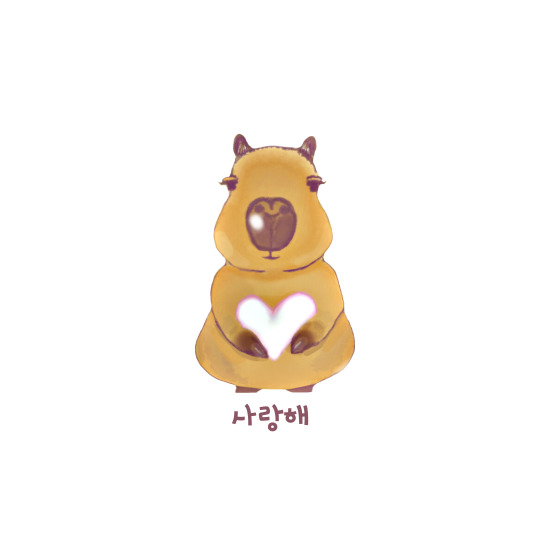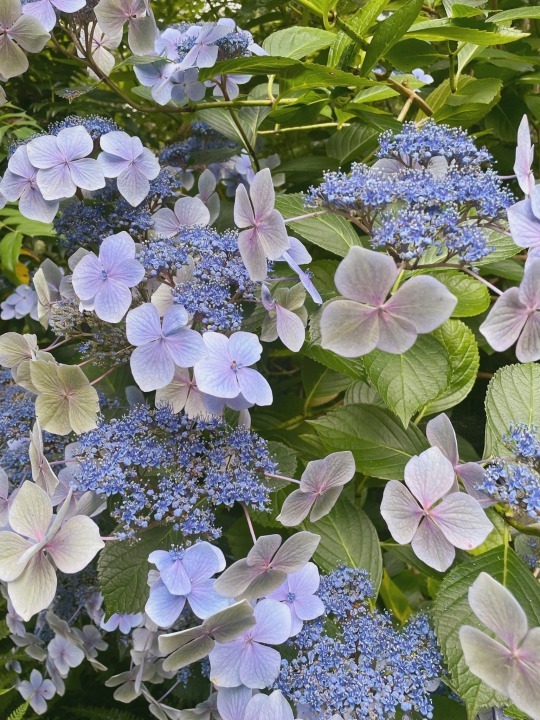#learn korean with bts
Text
Learn Korean With BTS Book 4

Download - HERE -
5 notes
·
View notes
Text
How To Write BTS Names in Korean https://bestofkdrama.com/how-to-write-bts-names-in-korean/
0 notes
Text

Cute bunny loaf notebook available on Amazon
࣪˖ ִֶָ🐇་༘࿐
오늘의 어훠 (Words for today):
토끼 - a rabbit
장미 - rose
빵 - bread
꽃 - a flower
잎 - a leaf
#korean language#learn korean#kpop#cute art#digital aritst#bunny loaf#bunny#rabbit#gift ideas#kawaii notebook#art#study notes#stray kids#bts#kawaiicore#한국어 공부#한국어#artists on tumblr#diary#language#learning#bunny mom#pets of tumblr#pets#cute animals#amazon#shop#kawaii aesthetic#digital art#my art
68 notes
·
View notes
Text
🍋 zesty's intro that no one asked for but everyone is getting anyway
hi, 👋 i'm studying psychology 🧠 part-time while working as a software engineer 👩💻 full-time.
also slowly learning Korean, Japanese, Chinese 🦉 (and to a lesser extent these days, Spanish, French, German).
also trying to Read a Book™️ 📚.
but i like sleep too much 💤😴🛌, i need at least 10 hours of it to be a good human. somehow always have time for my emotional support K-pop boys tho 🤔
TLDR: in case you're still confused, this is a studyblr/codeblr motivated by K-pop, trying to do the least most efficient amount of studying and coding before i can finally sleep 😇

(gif caption trans: hello!)
🍋 zesty's links mostly for her own convenience but you can use them too
#zesty's life — the (mostly) aesthetic diaries
#bumpy — processing the potholes of life
#energy bar — the emotional support k-pop boys
#잘자 제발 — (trans: sleep well please) i want sleep
#먹자 — (trans: let's eat) i want to enjoy my food
#할수있어요 — (trans: you can do it) encouragement
#친구 — (trans: friend) moots and more!
#studyblr#codeblr#student life#university#software engineering#language learning#chaotic academia#kpop#studyspo#programming#bookblr#workblr#coding#progblr#study blog#bts#lifeblr#langblr#astudentslifebuoy#korean studyblr#japanese studyblr#chinese studyblr#intro post#psychology student#new studyblr#light academia#dark academia#pink academia#seventeen#jeonghan
82 notes
·
View notes
Text
Agust D - Amygdala [lyrics+vocab]

I don't know your name
I don't know your name, yeah
I don't know your name
요즘 기분은 어때?
I don't know your name, your name, your name
기억들로 여행
지우고픈 일들
요즘 기분은 어때, 어때, 어때?
▫ 요즘 - lately
▫ 기분 - mood
▫ 요즘 기분은 어때? = How have you been feeling lately?
▫ 기억 - memories
▫ 여행 - travel, trip
▫ 지우다 - to erase
지우고픈 일들 = 지우고 싶은 일들 = Things I want to erase
천구백구십삼
내가 태어난 달
엄마 심장의 수술, 수술, 수술
별의별 일이 많았지
뭐가 이리 다사다난한지
기억조차 안 나는 기억도
다 꺼내 보자고 하나씩
다 꺼내 보자고 하나씩
▫ 태어나다 - to be born
▫ 달 - month
▫ 심장 - heart
▫ 수술 - surgery
▫ 별의별 - all kinds of, various
▫ 다사다난하다 - to be eventful
▫ 꺼내다 - to take out
▫ 하나씩 - one by one
최선들의 선택
다음 차선들의 선택
차차 선들의 선택, 선택, 선택, yeah
원치 않던 일들
내 통제 밖의 일들
자 집어넣자 하나둘
그래 하나둘, 그래 하나둘
▫ 최선 - the best
▫ 선택 - choice, decision
▫ 차선 - the second best
▫ 원하다 - to want
▫ 통제 - control
▫ 밖 - outside, out of
▫ 집어넣다 - put sb into, throw sb into
I don't know your name, your name, your name
기억들로 여행, 여행, 여행
I don't know your name, your name, your name
자 지워보자 하나씩, 그래 하나씩
My amygdala (My amygdala)
어서 나를 구해줘 어서 나를 구해줘
My amygdala (My amygdala)
어서 나를 꺼내줘 어서 나를 꺼내줘
My amygdala (My amygdala)
My amygdala (My amygdala)
이곳에서 구해줘 어서 빨리 꺼내줘, yeah, yeah
▫ 어서 - hurry, fast
▫ 구하다 - to save
▫ 이곳 - this place, here
▫ 빨리 - fast
Uh-uh, 그래 참 별의별 일이 많았지
Uh-uh, 귓가엔 엄마 심장 시계 소리
Uh-uh, 전하지 못했던 내 사고 소식과
스케줄 중에 걸려 온 전환 아버지의 간암 소식
(Woah-oh) 최선의 선택들이 맞았었길
(Woah-oh) 그 또한 모두 지나가 버렸기에
그래서 이 수많은 고통은 날 위한 것일까
끊임없던 시련은 날 죽이지 못했고
다시금 나는 연꽃을 피워내
▫ 귓가 - around my ears
▫ 엄마 심장 시계 소리 - the sound of the clock in my mom's heart
▫ 전하다 - to convey
▫ 사고 - accident
▫ 소식 - news
▫ 스케줄 - schedule
▫ 전화가 걸려오다 - to get a phone call
▫ 간암 - liver cancer
▫ 맞다 - to be correct
▫ 지나가다 - to pass
▫ 고통 - pain
▫ 끊임없다 - to be ceaseless
▫ 시련 - ordeal, hardship
▫ 죽이다 - to kill
▫ 다시금 - again
▫ 연꽃 - lotus
▫ 피우다 - to bloom
136 notes
·
View notes
Text
Korean Second-Person Pronouns
Unlike English, Korean has multiple ways to say the word "you" depending on the context. Generally, since Korean is a pronoun avoidance and high context culture, people do not use any pronouns at all when speaking unless necessary. Instead, the subject is completely omitted or the person's name/title is used (eg. Yura-ssi, sunbae-nim, oppa, etc).
I also wanna preface that of course theres some exceptions and certain circumstances that can change the usage of these words for "you" and that this post is just a general overview.
너 nuh (used when "you" is the topic) & 네/니 ni (used when "you is the subject): the most informal and impolite way of saying "you". it is only used when talking to close people either the same age as you or younger than you. using nuh to strangers or people you don't know well in general is extremely rude and unnatural.
너희 nuh-ee is the plural form of nuh
너네 nuh-ne is also a plural form of nuh but it's not part of standard korean and is seen as more rude, it also emphasizes the plural aspect of the sentence more.
당신 dangshin: this is the most formal way of saying "you", but as I mentioned before, pronouns aren't used in general so even saying this way of "you" can still be seen as quite rude and confrontational. it would be the japanese equivalent as anata and is also used commonly by married couples to refer to each other with the meaning of "darling".
자네 ja-neh: this is usually used by elderly men and women (mostly men) when referring to younger people.
그대 geudae: this form of "you" isn't really used in real life. it's mostly used poetically in romantic songs, letters, etc.
댁 daek: this way of saying "you" literally translates to "house" (formal, informal way of saying house is jib). generally, it's a more informal version of dangshin and is usually used when you're being rude and showing attitude to someone you shouldn't be impolite to.
그쪽 geo jjok: this literally translates to "that side" and is used similarly as dangshin but is more specific for when you meet someone for the first time and you're being rude/sassy/confrontational to them. (I'm also pretty sure there's something like this in Japanese as well..?)
in conclusion: honestly, as long as you know nuh and danghin you'll be perfectly fine!
#korean language#korean linguistics#koreanlanguage#korean#south korea#kpop#bts#language stuff#language learning#languages#squid game#pronouns#kdrama
11 notes
·
View notes
Text
Learn Korean with me - Week 13
Day 2: Let's Speak Korean Ch 7 On the Plane (11 - 20)
좀도와주시겠어요? Jum do wa ju sig ess eo yo Could you please help me a little?
가방안에무엇이들어있나요? Ga bang an e mu eos I deur eo iss nay o What is in the bag?
비상구는어디입니까? Bi sang gu neu neo di ib nig ga Where is the emergency exit?
벨트를매주세요. Ber teu reur mae ju se yo Please fasten (your) seat belts.
기내에서는금연입니다. Gi nae e seo neun geum yeo nib ni da (Literal) It’s non-smoking inside the plane. = Smoking is prohibited on board.
휴대폰은비행기모드로바꿔주세요. Hyu dae pone un bi haeng gi mo deu ro ba ggwo ju se yo Please switch (your) cell phone to airplane mode.
전자기기를모두꺼주세요. Jeon ja gi gi reur mo du ggeo ju se yo Please turn off all (your) electronic devices.
휴대폰을써도되나요? Hyu dae pon eur sseo do doe nay o Can I use (my) cell phone?
화장실에가도되나요? Hoa jang sir e ga do doe nay o Can I go to the restroom?
승무원의안내에따라주세요. Seung mu won eui an nae e dda raj u se yo Please follow (to/by) the flight attendant’s directions.
#Learning Korean#Korean#Hanguel#BTS#Bangtan#RM#Jin#Suga#J Hope#Jimin#V#Jungkook#South Korea#Korea#motivation#that girl#badass#glow up#Military Wife#We Will Wait#2025#travel#self care#self improvement#love#borahae#fighting#no more excuses#2024
10 notes
·
View notes
Photo

Korean Phrases to Encourage Your Kpop Idols
1.화이팅 (hwaiting) – This is a popular cheer-up phrase that’s commonly used in Korea. It’s often translated as “fighting” or “let’s go”.
2. 잘하고 있어요! (Jalhago isseoyo!) – This phrase means “You’re doing well!” or “You’re doing a good job!”
3. 오늘도 수고 많았어요 (oneuldo sugo mannatseoyo) – This means “You did a great job today” and is commonly used among not just K-Pop idols but also Koreans.
4. 자랑스러워요 (jarangseureowoyo) – This phrase means “I am proud of you”
5. 오늘도 멋있었어요 (oneuldo meosisseosseoyo) – This means “You were cool today, too”
6. 힘내세요! (Himnaeseyo!) – This phrase means “cheer up!” or “stay strong!”
7. 사랑해요 (saranghaeyo) – This means “I love you”
8. 좋은 일만 있길 바라요 (joheun ilman itgil barayo) – This phrase means “I hope only good things happen to you.”
9. 늘 응원할게요 (neul eungwonhalgeyo) – This means “I will always cheer you on.” or “I will always support you”.
10. 절대 포기하지 마세요 (jeoldae pogi haji maseyo) – This means “never give up.”
11. 꿈을 이루길 바랄게요 (ggumeul irugil baralgeyo) – This phrase means “I hope your dreams come true.”
12. 당신은 최고예요 (dangshineun choegoyeyo) – This means “you are the best.”
13. 저희는 항상 당신과 함께 있어요 (jeohui-neun hangsang dangsin-gwa hamkke isseoyo) – This means “we are always with you.”
14. 당신의 꿈을 응원합니다 (dangsin-ui kkumeul eungwonhamnida) – This means “I support your dreams.”
15. 당신은 끝까지 할 수 있어요 (dangshineun kkeutkkaji hal su isseoyo) – This means “You can do it until the end”
Notes: You can replace “당신” with your idol’s name in the sentence number 12, 13, 14 and 15 to make it more personal.
For example:
If your idol’s name is Jungkook, you can say “정국씨는 최고예요” (Jungkook-ssi-neun choegoyeyo), which means “Jungkook is the best.”
Or
If your idol’s name is Lisa, you can say “리사씨의 꿈을 응원합니다” (Lisa-ssi-ui kkumeul eungwonhamnida), which means “I support Lisa’s dreams.”
Remember to use appropriate honorifics when addressing your idols, and to use their preferred name or stage name if applicable. For example, you can add “씨” (ssi) after their name to show respect, as in the example above.
🌸 🌼 🌻
Support me at: https://koreanlanguageloving.my.canva.site/
#Korean Quotes#Korean Phrases#Learn Korean#Study Korean#Korean Language#korean langblr#Hangul#KPOP idol#encouraging phrases#BTS#Black Pink#한국어공부해요#한국어공부하기#한국어 공부하기#한국어공부#한국어능력시험#한국어 단어#한국어 배우기#한국어 문법#한국어 연습#한국어#한국어공부중
77 notes
·
View notes
Text
⚠️IF YOU WANT TO LEARN KOREAN FOR FREE YOU SHOULD TRY IT⚠️
https://learn-korean-with-yuli7.webnode.fr/
1 register to have notification
2click on the 3 lines
3 select funny lessones ,beginer lessons or classes(classes is all the classes) by clicking on it
4 select the lesson that you want to learn by clicking on it
#cool#korean#korean learning#cha eun woo#bambam#newjeans#kpop#blackpink#bts#learn korean#lol#skz#stray kids#true beauty#txt#bias#bangtan#bang chan#kdrama#south korea#kai#learn languages#lisa#astro kpop#army#astro aroha#sanha#yulicool#how to learn a language#learn korean with yuli
21 notes
·
View notes
Note
hii!! could you please do a lyrical breakdown of Sea by BTS?thank u sm!
Hi! Here it is--thank you for the request and your patience! If anyone else has a request, let me know!
I referred to Naver Dictionary, this video, and Genius's translation of this song to help me out! I will also link my full-length lessons of the grammar points throughout if you want more info on them!

Vocabulary
바다 = Sea
해변 = Beach
모래 = Sand
여전히 = Still
사막 = Desert
들이키다 = To bring close
푸르다 = To be blue
파도 = Wave
느끼다 = To feel
아직도 = Still
바람 = Wind
희망 = Hope
절망 = Despair; hopelessness
진짜 = Real; really
가짜 = Fake
시련 = Hardship; trials
불안하다 = To be anxious
아름답다 = To be beautiful
반드시 = Certainly
신기루 = Mirage
두렵다 = To be afraid
Grammar
I don't know, I don't know / 내가 지금 파도를 느끼고 있는지, yeah / I don't know, I don't know / 아직도 모래바람에 쫓기고 있는지, yeah / I don't know, I don't know / 바다인지 사막인지 희망인지 절망인지 / 진짜인지 가짜인지
I don't know, I don't know / If I'm feeling the sea right now, yeah / I don't know, I don't know / Or if I'm still being chased by the sandstorm, yeah / I don't know, I don't know / Whether it's the sea, the desert, hope, or despair / Whether it's real or fake
-고 있다
This is the present progressive form in Korean. We know it in English as -ing. 느끼다 means "to feel," while 느끼고 있다 means "feeling." 쫓기다 means "to be chased," while 쫓기고 있다 means "being chased."
-ㄴ/는지
This is attached to stems to mean "whether" or "if." In contexts like this, it is used with verbs 알다 (to know) and 모르다 (to not know). The lines 내가 지금 파도를 느끼고 있는지, yeah / I don't know, I don't know, mean "I don't know if I'm feeling the waves right now." To write this in full Korean, you would just put 모르다 after 있는지.
불안하더라도 사막일지라도 / 아름다운 나미브 사막이라고
Even if you're anxious, even if it's a desert / It's the beautiful Namib Desert
-더라도
-더라도 is similar to -아/어/여도 and means "even though/if." I think a difference between the two would be that -더라도 sounds a little stronger, kind of like the word "despite" in English.
희망이 있는 곳엔 반드시 시련이 있네
Where there is hope, there is always hardship
[verb stem] + 는 + [noun]
This is the structure used to describe nouns with verbs (aka putting verbs into their noun-modifying form). 희망 is "hope," 있다 means "to be there," and "곳" means "place." Altogether, it means "the place where hope is" or "where there is hope."
-네(요)
This sentence ending expresses surprise or admiration. In this case, this line could be expressing surprise at the fact that there is always hardship where there is hope.
바다인줄 알았던 여기는 되려 사막이었고 / 별거 없는 중소아이돌이 두번째 이름이었어
I thought this was a sea, but it's a desert / A small, ordinary idol was my second name
-ㄴ/은/는/ㄹ 줄 알다
This structure expresses that you thought something was the case, but in reality, it is not. This line essentially means "I thought this place was a sea but it's a desert." Your original thought conflicts with reality.
[verb stem] + 았/었/였던
This is one way to turn verbs into their noun-modifying form in the past tense. This is pretty similar to just adding -ㄴ/은 to the stem. Use this structure when the action has been completed and you are no longer doing it. 바다인 줄 알았던 여기, to translate literally, means "this place that I thought was a sea." This implies that he no longer thinks that this place is a sea.
울고 싶지 않아 / 쉬고 싶지 않아 / 아니 조금만 쉬면 어때 / 아니 아니 아니 / 지고 싶지 않아 / 원래 사막이잖아 / 그럼 달려야지 뭐 / 더 우울해야지 뭐
I don't want to cry / I don't want to rest / Well how about resting for just a bit? / No no no / I don't want to lose / It's always been a desert / Then I'll run / Then I'll be more depressed
[verb stem] + 고 싶다
This structure means "to want to [verb]." 울고 싶다 means "to want to cry, for example. Attaching -지 않다 to the stem of 싶다 negates it; 울고 싶지 않다 means "to not want to cry."
-(으)면
This structure means "if." 조금만 쉬면 어때 literally means, "how is it if we rest for just a bit?" This essentially means "how about we rest for a bit?"
-잖아(요)
This sentence ending is used when the speaker presents information to the listener that they should already know. It kind of has the nuance of "you know..." 원래 사막이잖아 means "it's always been a desert" and implies that the listener would agree/already knows this fact.
-지 뭐
This is a colloquial way of saying "I guess" or "whatever" or "oh well" according to Go Billy Korean. It expresses that nothing can be done about the situation you're talking about. 그럼 달려야지 뭐 means "so I'll run" and 더 우울해야지 뭐 means "I'll be more depressed" according to the lyric video linked above. This is essentially saying that nothing can be down about this.
That's about it for this breakdown--I hope it was helpful! See you in the next lesson! 화이팅!
My masterlist
Join my Discord chat here to practice Korean with others!
Follow me on Instagram here for more Korean content!
Get Drops Premium using my affiliate link to expand your Korean vocab!
Check out my Ko-Fi to support this blog and my studies! Thank you for your generosity!
#korean#korean language#kpop#kpop lyrics#bts#bts sea#kpop breakdown#korean grammar#korean vocab#korean vocabulary#apok#apopofkorean#langblr#korean langblr#study korean#studying korean#learn korean#learning korean#한국어#한국어 공부하기#한국어 배우기#문법#어휘#케이팝#가사
52 notes
·
View notes
Text
HELP I SAID "핸복가자" WHICH MEANS "LET'S GO TO HANBOK" INSTEAD OF "행복하자" WHICH MEANS "LET'S BE HAPPY"(THAT'S WHAT I WAS TRYNNA SAY) 😭😭😭😭😭😭😭
I'm embarrassed now
#korean#korea#south korea#kpop#learn korean#language learning#learning#hangul#hangeul#한글#한국어#한국어 공부#한국축구#한국말#한국#studying#studyblr#study blog#study motivation#bts#blackpink#txt#exo#ateez#seventeen#twice#aespa#itzy#meme#memes
14 notes
·
View notes
Text
Learn Korean With BTS Book 2

Download - HERE -
4 notes
·
View notes
Text





언니 = Unnie = Older Sister
If I am a male, then we call older sister as "누나"(Noona)
언니 is the name when we are female, and if I have older sister.
some 언니 has girl crush style, and some 언니 take care of me.
anyway, 언니 is lovely word when they say it.
Check out more lyric words in kpop pro app!
2 notes
·
View notes
Text
Cute capybara 사랑해

For those who are interested in Korean language:
"사랑해" means in Korean "I love you", it's very informal and intimate way to say due to 반말 (a plain language you use between friends/lovers, people that you know and they are in the same age/younger)
In Korean language, depending on the level of intimacy, age gap, work/school hierarchy, you use 반말 or 존댓말.
In case you want to sound more polite, feel free to use
"사랑해요"
(adding -"요" changes 반말 into 존댓말 - a polite, honorific language)
#cute art#digital aritst#redbubbleshop#kawaiicore#learn korean#korean words#korean#반말#존댓말#korean grammar#capybara art#capybara#capybara meme#digital art#capyposting#kpop#stray kids#bts#bts army#south korea#kawaii aesthetic#artists on tumblr
42 notes
·
View notes
Text
february is for finishing 🏃♀️💪



these are the goals i actually care about achieving this month!
i probably won't actually finish all of them — the goal is mainly to make good progress, but i wanted the ✨ alliteration effect ✨
finish listening/reading all these Korean A1/2 stories 🤩
finish listening/reading all these Chinese HSK2/3 stories 🤓
try all the exercises in this this workout plan now that i'm pain-free 🥺
finish reading Sophie's World 🌎
finish re-watching Exclusive Fairytale 🐇
finish watching CYZJ 🎤
💌: that's it, just a short(?) list for a short month, especially since i have swe work and psych classes to keep up with on top of these 😅

한국어
이월에 난 다를 끝나서게 🏃♀️💪
이월에 난 몇 목표를 있어요.
사실 아마 다 목표를 안 끝나게 — 내 목표의 포인트는 좋은 진전 만들어요, 근데 그 ✨두운 효과✨ 원해요.
다는 A1-A2 한국어 이야기를 들어지 끝 🤩
다는 HSK2-3 중국어 이야기를 들어지 끝 🤓
다는 이 운동 계획의 것들 해볼게 왜냐면 이젠 아파 없어요 🥺
소피의 세상을 읽지 끝 🌎
Exclusive Fairytale 끝까지 봐요 🐇
CYZJ 끝까지 봐요 🎤
���: 그게 다야, 이 월은 짧다면, 그냥 짧은(?) 목록 있어요, 특히 왜냐면 나도 소프트웨어 엔지니어의 일해 와 심리학 수업들 있어요.
中文
在二月我会完了都的东西 🏃♀️💪
这个月我有些目标。
我大概不完了一切 — 目标是主要是做好的进步,但是我想有✨头韵✨
完了听和读一切这些中文的故事 🤩
完了听和读一切这些韩语的故事 🤓
尝试一切在这个运动计划因为现在我没有病了 🥺
完了读Sophie的世界 🌎
完了看独家童话 🐇
玩了看潮音战机 🎤
💌:就是这样,只是短的列表因为短的月,尤其因为我有软件工程师的工作和些心理学课。
#study goals#studyblr#langblr#study motivation#study inspiration#bts#bts jin#korean langblr#chinese langblr#bookblr#currently reading#currently watching#currently listening to#working student#studyspo#study aesthetic#study blog#astudentslifebuoy#goals#bts army#100 days of productivity#100 days of studying#100 days of self discipline#self improvement#self development#self empowerment#language learning#learning languages#kim seokjin#chaotic academia
31 notes
·
View notes
Text
Agust D - 해금 (Haegeum) [lyrics+vocab]

이 노래는 해금, yeah
올라타 봐 지금, yeah
복작대는 리듬 어쩌면
이 또한 또 다른 해금
⁕ 해금 - to lift a ban
해금 is also the name of a single stringed traditional Korean instrument but the hanja for "lifting a ban" is the following:
- 解 풀 해 - to lift, free
- 禁 금할 금 - to ban
⁕ 올라타다 - to get on
⁕ 지금 - now
⁕ 복작대다 - to bustle, swarm
⁕ 리듬 - rythm
⁕ 어쩌면 - maybe
⁕ 또한 - also
이 노래는 해금, yeah
올라타 봐 지금, yeah
복작대는 리듬 어쩌면
이 또한 또 다른 해금, yeah
해석들은 자유, yeah
개소리는 아웃, yeah
표현들의 자유
어쩌면 누군가의 죽음 사유
그것 또한 자유일런지
당신의 판단과 추측엔 확실한 신념들이 있는지
당신의 자유와 타인의 자유가 동일하다 믿는지
그렇다면 주저 말고 올라타 봐
금지된 것들로부터의 해방
각자의 취향조차 이해들을 못 하는 불행한
이 시대를 살아가는 이들을
위한 이 노랜 금지된 것을 푸는 것뿐이지
허나 자유와 방종의 차이쯤은 부디 구분하길
이 노래는 해금
올라타 봐 지금
복작대는 리듬
또 다른 해금
⁕ 해석 - interpretation
⁕ 자유 - freedom
⁕ 개소리 - bullsh*t
⁕ 표현 - expression
⁕ 죽음 - death
⁕ 사유 - cause
⁕ 판단 - judgement
⁕ 추측 - assumption
⁕ 확실하다 - to be sure
⁕ 신념 - belief
⁕ 타인 - others
⁕ 동일하다 - to be the same
⁕ 주저하다 - to hesitate
⁕ 금지되다 - to be forbidden
⁕ 해방 - liberation
⁕ 각자 - each
⁕ 취향 - taste
⁕ 이해하다 - to understand
⁕ 불행하다 - to be unhappy
⁕ 시대 - generation
⁕ 풀다 - to undo
⁕ 허나 - however
⁕ 방종 - self-indulgence
⁕ 차이 - difference
⁕ 부디 - please
⁕ 구분하다 - to differentiate
쏟아지는 정보들은 상상의 자유들을
금지시킴과 동시에
사상의 통일성을 원해
꽤나 머리 아픈 각종 노이즈는 눈을 가리고
이제는 생각의 자유조차 범해
각종 논란들은 판단들의 혼란들을
야기시키고 또 쉴 틈 없이 생산되네, uh
과연 우릴 금지시킨 건 무엇일까
어쩌면은 우리 자신 아닐까
자본의 노예, 돈들의 노예
증오심과 편견 혐오의 노예
유튜브의 노예, 플렉스의 노예
이기심과 탐욕이 미쳐 날뛰네
눈 감으면 편해, 모든 게 뻔해
이득에 따라서 뻔히 갈리는 견해
시기와 질투에 다들 말야 눈들이 머네
서로가 서로에게 족쇄를 거는 것도 모른 채
⁕ 쏟아지다 - to pour, spill
⁕ 정보 - information
⁕ 상상 - imagination
⁕ 동시에 - at the same time
⁕ 사상 - thought
⁕ 통일성 - unity
⁕ 원하다 - to want
⁕ 각종 - various
⁕ 눈을 가리다 - to cover one's eyes
⁕ 논란 - controversy, dispute
⁕ 혼란 - chaos, mess
⁕ 야기시키다 - to cause havoc
⁕ 쉴 틈 없이 - without a rest
⁕ 생산되다 - to be produced
⁕ 우리 자신 - ourselves
⁕ 자본 - capital
⁕ 자본주의 - capitalism
⁕ 증오심 - hatred
⁕ 편견 - prejudice
⁕ 혐오 - loathing
⁕ 노예 - slave
⁕ 이기심 - selfishness
⁕ 탐욕 - greed
⁕ 날뛰다 - to leap
⁕ 편하다 - to be comfortable
⁕ 뻔하다 - to be obvious
⁕ 이득 - profit
⁕ 갈리다 - to be split
⁕ 견해 - point of view, opinion
⁕ 시기 - jealousy, envy
⁕ 질투 - jealousy, envy
⁕ 눈이 멀다 - to be blind
⁕ 서로 - each other
⁕ 족쇄를 걸다 - to shackle
정보의 쓰나미에서 쓸려 내려가지 말길
우린 자유와 방종의 차이쯤은 모두 구분하니
⁕ 쓰나미 - tsunami
⁕ 쓸리다 - to be swept away
⁕ 내려다가 - to go down
45 notes
·
View notes